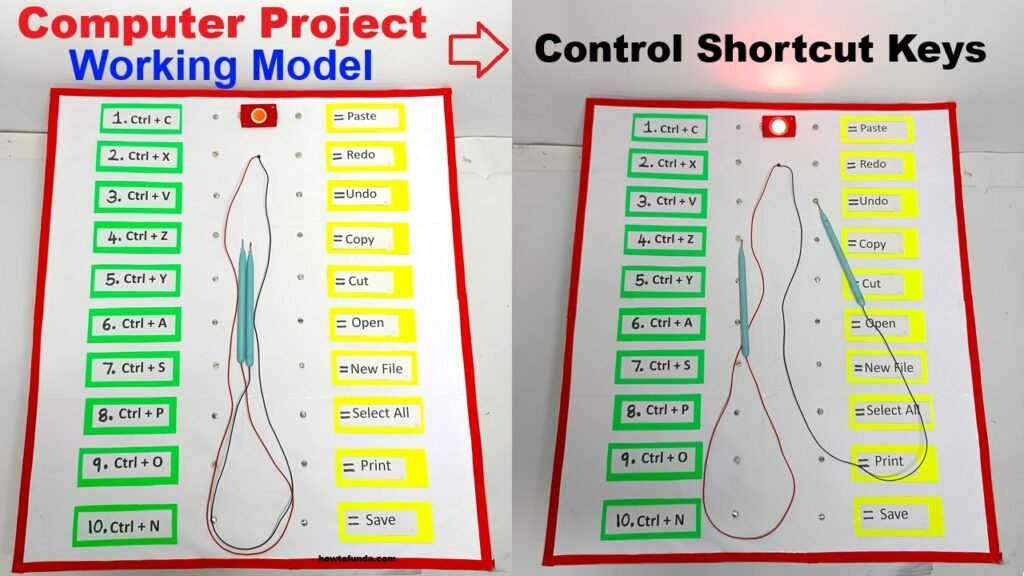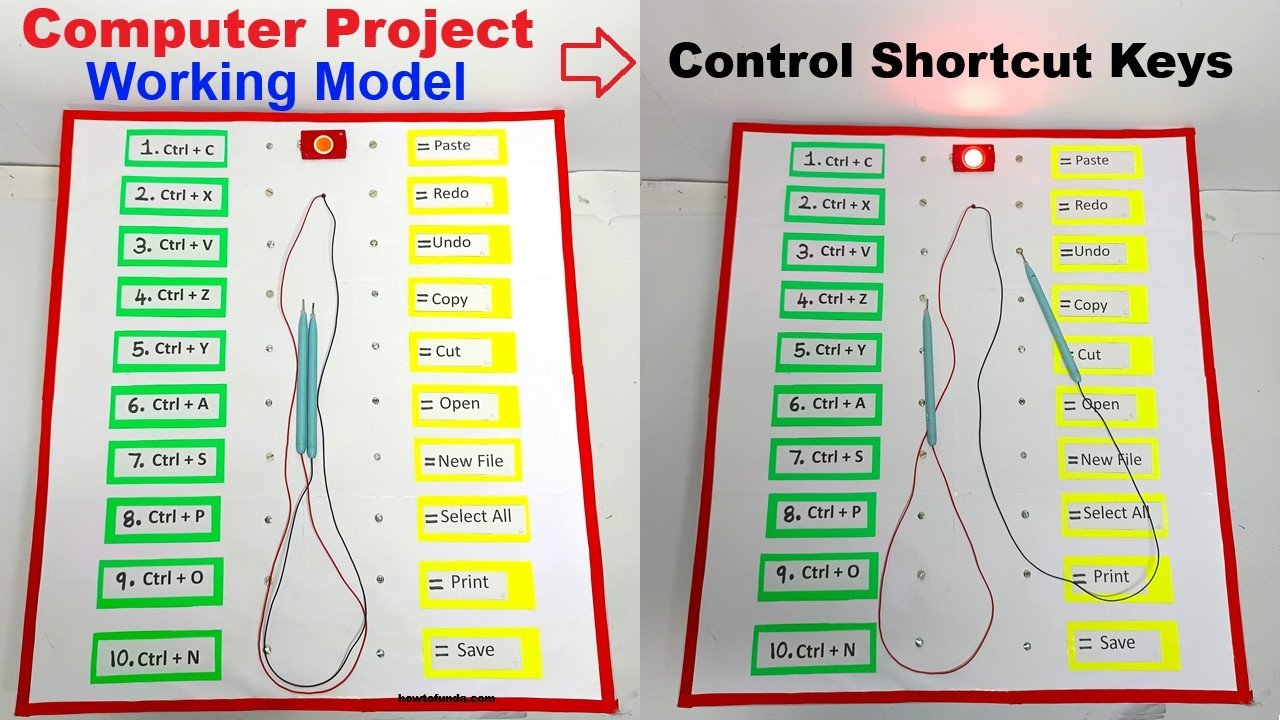Control (Ctrl) shortcut keys are keyboard combinations that help users perform common tasks quickly. These shortcuts are used with the Ctrl key along with another key to execute commands.

Common Control Shortcut Keys and Their Functions:
Basic Editing Shortcuts
- Ctrl + C → Copy
- Ctrl + X → Cut
- Ctrl + V → Paste
- Ctrl + Z → Undo
- Ctrl + Y → Redo
File Management Shortcuts
- Ctrl + S → Save
- Ctrl + O → Open File
- Ctrl + P → Print
- Ctrl + N → New Document
Text Formatting Shortcuts
- Ctrl + B → Bold
- Ctrl + I → Italic
- Ctrl + U → Underline
Navigation Shortcuts
- Ctrl + A → Select All
- Ctrl + F → Find
- Ctrl + H → Replace
- Ctrl + Right Arrow → Move to Next Word
- Ctrl + Left Arrow → Move to Previous Word
Browser Shortcuts
- Ctrl + T → Open New Tab
- Ctrl + W → Close Tab
- Ctrl + L → Highlight Address Bar
- Ctrl + R → Refresh Page
These shortcuts increase efficiency by reducing the need to use a mouse.
How to make the Control Shortcut Keys Match Board
You can create a Control Shortcut Keys Match Board working model using LED lights, wires, a 9V battery, and metal nails. Here’s how:
Materials Required:
- Cardboard sheet (for the base)
- Color paper & markers (for labeling)
- LED lights (to indicate correct matches)
- 9V battery (for power)
- Metal nails (as conductive points)
- Wires (to connect the circuit)
- Buzzer (optional) (for sound indication)
Steps to Make the Model:
1. Prepare the Base Board
- Take a large cardboard sheet.
- Divide it into two sections:
- Left Side: Write shortcut key combinations (e.g., “Ctrl + C”).
- Right Side: Write their corresponding functions (e.g., “Copy”).
2. Set Up Conductive Points
- Insert metal nails beside each shortcut key on the left.
- Insert metal nails beside each function on the right.
3. Wiring the Circuit
- Connect each shortcut key nail to its correct function nail using wires under the board.
- Attach an LED between the shortcut and function connection.
- Connect a 9V battery in series with the LED and nails.
4. User Interaction (Match Game)
- Use a metal wire probe (or another conducting object) to complete the circuit.
- When the correct key is matched with its function, the LED will light up.
- If you add a buzzer, it can also beep for correct matches.
Shortcut Key Examples to Include:
- Ctrl + C → Copy
- Ctrl + V → Paste
- Ctrl + X → Cut
- Ctrl + Z → Undo
- Ctrl + Y → Redo
- Ctrl + P → Print
- Ctrl + S → Save
This model will be an interactive way to learn and demonstrate shortcut keys in computers.

